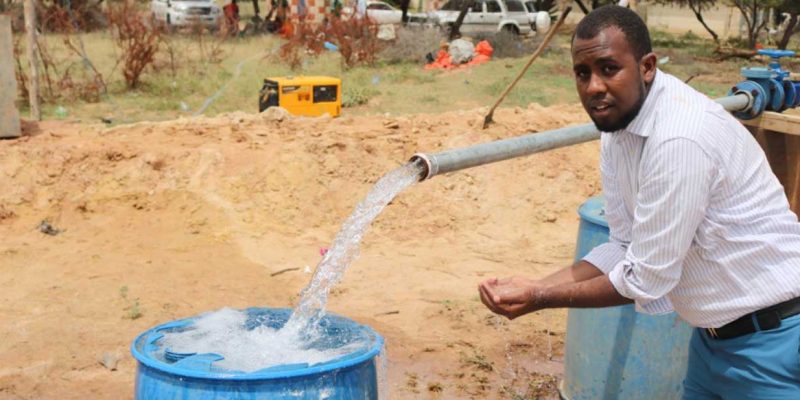In Chad, €34.2 million in funding from the African Development Bank (AfDB) will support work on the second phase of the semi-urban and rural drinking water supply and sanitation programme.
The second phase of Chad’s semi-urban and rural drinking water supply and sanitation programme has just received a loan of 34.2 million euros (22.4 billion CFA francs) from the African Development Bank (AfDB) Group. At least seven urban areas are targeted by this project, which is aimed at implementing the sixth Sustainable Development Goal (SDG6).
They are located in the provinces of Ennedi, Mandoul, Moyen Chari, Mayo Kebbi East, Mayo Kebbi West, Salamat and Sila. The work will involve the construction of 23 boreholes for the supply of drinking water, the construction of 225 boreholes equipped with human-powered pumps, and the construction of 50 water production units and 54 solar or thermal mini-water supply systems.
Universal access to water and sanitation services
In the area of sanitation, the AfDB has announced that its budget will be used to build 500 three-stall flush toilets equipped with hand-washing facilities, as well as to install 20 refuse bins to improve hygiene and sanitation for Chadians in schools, health centres, bus stations and markets. Women play an important role in this investment, as the financial institution based in Abidjan, Ivory Coast, points out that seven large-diameter agricultural boreholes and seven agricultural gardens will be set up for small-scale irrigation “for women’s groups”.
“By investing in the construction of social and rural infrastructure in areas affected by fragility, the programme will contribute to building resilient societies, reducing isolation and inequalities between women and men, promoting inclusive economic development and strengthening access to basic health services,” explains Mamadi Souaré, the AfDB’s acting country representative in Chad.
Read also-CHAD: People on alert as Chari River waters rise alarming
The people of the town of Amdjarass (Ennedi province) will be the first to benefit, given the increase in water-borne diseases in recent years. As a reminder, the rate of access to drinking water in Chad is 63% with major disparities and 30% for sanitation services, according to official figures.
Benoit-Ivan Wansi





